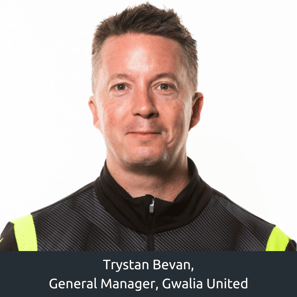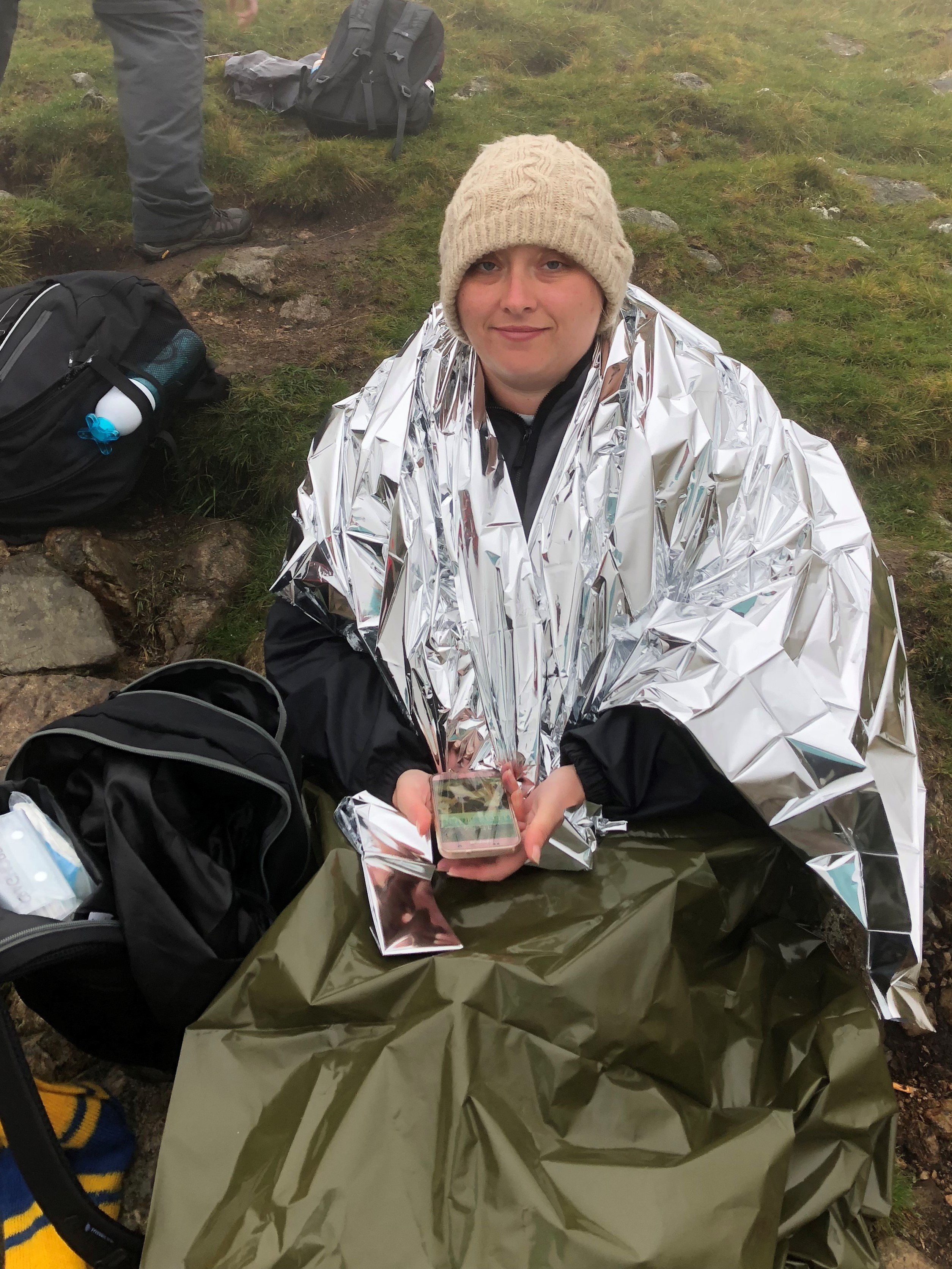The Power of Teamwork: Lessons from the Field to the Office
At Gladstone, we know success – whether in sport, business, or community – is built on teamwork. That’s why we’re excited to feature insights from Trystan Bevan, General Manager of Gwalia United and a performance expert with years of experience creating high-performing teams. Recently, Trystan hosted a speaker session with our Higher Education (HE) customers, sharing tailored insights to address their unique challenges.
Drawing from his deep expertise, Trystan demonstrates how principles from elite sport can transform leadership and collaboration. In this blog, he shares actionable strategies to inspire and empower teams in the leisure industry, offering practical takeaways for anyone looking to elevate performance and foster collaboration.
Over the years, I’ve been fortunate to work with high-performance teams, from elite rugby squads to local community organisations. If there’s one truth I’ve come to understand, it’s this: teamwork isn’t just a buzzword; it’s the foundation of success.
Great teams, whether on the pitch or in a business setting, don’t happen by accident. They’re built deliberately, with a shared vision, clearly defined roles, and a culture of collaboration. The principles that lead to victories in sport are the same ones that help organisations thrive, and it’s remarkable how these lessons translate across disciplines.
The Blueprint for Success
When we study successful teams, certain patterns consistently emerge. These aren’t just coincidental - they’re the essential ingredients of greatness.
- Quality People: You can’t win with mediocrity. Whether you’re managing a high-performing football team, rugby squad or a team at a leisure centre, the calibre of your people makes all the difference. It’s not just about skills but also about character, resilience, and adaptability. By investing in training, mentoring, and upskilling, you can cultivate a team that’s not only capable but also motivated to exceed expectations.
- Shared Vision: Everyone needs to understand what they’re working towards. In sport, it might be lifting a trophy; in leisure, it could be enhancing customer satisfaction or fostering community health. This shared vision acts as a unifying force, ensuring that every team member’s efforts align with the organisation’s goals. Without it, even the most talented teams can feel disjointed.
- Defined Roles: On the pitch, every player has a specific position and set of responsibilities - and the same should hold true for your team. Clear roles reduce confusion, streamline operations, and empower individuals to take ownership of their contributions. When each person knows their role and trusts their teammates to perform theirs, the whole team functions like a well-oiled machine.
Jigsaws and Masterpieces: Building Teams
I often compare teamwork to two forms of art: assembling a jigsaw puzzle or painting a masterpiece.
- The Jigsaw Approach: Sometimes, you inherit a team with all the pieces in place, and the challenge is to bring them together harmoniously. In this scenario, it’s about finding alignment—identifying strengths, addressing gaps, and fostering a sense of unity. For example, in leisure management, this could mean integrating systems like Gladstone’s to ensure that operations, bookings, and staff schedules work seamlessly as a cohesive whole.
- Painting the Masterpiece: Other times, you’re starting from scratch, with a blank canvas. This is your opportunity to build a team with a unique identity and purpose. It involves recognising individual talents, developing those skills, and bringing everyone together under a shared vision. In sport, this might mean nurturing young players; in leisure, it’s about tailoring your approach to meet the specific needs of your community.
Sustaining Success Through Collaboration
Winning is hard; staying on top is even harder. Teamwork isn’t just about achieving a single success - it’s about creating a culture that allows success to flourish over time.
- Encourage Feedback: The best ideas often come from within your team. Create an environment where people feel empowered to speak up, share insights, and suggest improvements. Listening to your team isn’t just about addressing concerns - it’s about showing that their voices matter.
- Embrace Technology: Today’s world demands a tech-savvy approach. In sport, technology is transforming the way teams prepare, train, and compete - from GPS trackers monitoring performance to video analytics breaking down gameplay. In leisure centres, tools like Gladstone’s management solutions are revolutionising operations. They streamline processes, deliver valuable data insights, and allow staff to focus on delivering outstanding customer experiences. Whether it’s optimising player performance or enhancing member satisfaction, technology is a game-changer.
- Celebrate Wins: Big or small, every victory matters. Acknowledging achievements - whether it’s a team win, a successful campaign, or a new initiative, this boosts morale and reinforces a culture of success. Take time to recognise both individual contributions and team accomplishments, as these moments can inspire future efforts.
A Leader’s Role: Balancing Challenge and Support
One of my favourite lessons comes from the tightrope walker Philippe Petit: give your team enough challenge to stretch them and enough support to keep them steady.
For leaders, this means putting the team’s needs first. Empower people by giving them the tools, autonomy, and trust to succeed, and celebrate their contributions rather than seeking the spotlight for yourself. Leadership isn’t about doing everything - it’s about creating an environment where your team can thrive.
Final Thoughts
In sport and business, the teams that succeed aren’t always the ones with the most resources or the biggest budgets. They’re the ones that work together, trust each other, and share a commitment to excellence.
Whether you’re chasing a trophy or building a thriving community, remember this: teamwork is the ultimate differentiator. Get it right, and there’s no limit to what your team can achieve.
If you’d like to explore how teamwork can elevate your organisation, I’d be happy to connect and share more insights. Let’s keep building together.

Share this
You May Also Like
These Related Stories

From Struggling to Strong: My Journey to Fitness (with a Few Laughs Along the Way!)

Mountain Rescue Helps Gladstone Scale the Three Peaks Challenge



No Comments Yet
Let us know what you think